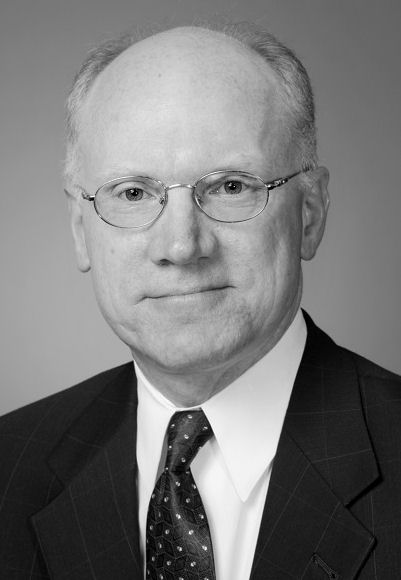| Michael Kyle, WEF House of Delegates member and Lancaster Area Sewer Authority executive director
Michael Kyle currently is the executive director of the Lancaster (Pa.) Area Sewer Authority, a regional system serving 33,000 customers. Previously he worked as a laboratory supervisor, industrial pretreatment administrator, instructor, operations superintendent, and director of Wastewater Treatment at the Springettsbury Township (York, Pa.) regional facility. Kyle, a WEF member since 1980 and WEF House of Delegates member from 2009–2011 and 2014, has served on several WEF committees including the Utility Management, Constitution and Bylaws, Nominating, and Program committees. He currently is co-chair of WEF’s Operator Strategy workgroup. Kyle also has participated in several WEF workgroups including the Wastewater Systems Operations Professionals Certification and Training position statement re-write task force and the MA Visit task group, and is a judge for the WEF Operator Ingenuity contest. Kyle has been an active member of and served in various leadership positions at the Pennsylvania Water Environment Association, the Pennsylvania Municipal Authorities Association (Wormleysburg), and Pennsylvania One Call (West Mifflin), and has served as treasurer and secretary of his local watershed alliance. Kyle, a Class A certified wastewater operator in Pennsylvania, has been a member of the Pennsylvania State Certification Board since 1991. He has a master’s degree in Environmental Pollution Control from the Pennsylvania State University (State College). |
The Water Environment Federation (WEF; Alexandria, Va.) House of Delegates (HOD) Operator Outreach workgroup was formed in 2010. The workgroup was tasked with collaborating with WEF staff, committees, and Member Associations (MAs) to ensure the success of professional operator initiatives to help MAs attract and retain operators as WEF members.
The HOD workgroup attempted to evaluate operators’ needs and identify the successes that WEF and the MAs have had in meeting those needs. It also attempted to identify any deficiencies and suggest ways to improve. The workgroup’s primary focus was providing timely and quality operator training at a reasonable cost, although there also was a lot of work done to address operator certification. Bob Wimmer, Dianne Sumego, Erin Mosley, and I have served as chairs of the workgroup.
In 2010 the workgroup conducted three different surveys to understand the issues facing them. The first asked front-line operators to identify needs and expectations of WEF and to prioritize training topics for WEF’s distance learning program. The second delved more deeply into topics and was more widely distributed. The third addressed operator training at the MA-level as well as management topics.
In 2011 the workgroup broke out into subgroups to draft white papers on various topics. One paper compared Operator Certification to other professional certifications. Another paper evaluated the cost and value of operator training that is provided by WEF. Another analyzed different funding alternatives for operator certification programs across the U.S., what worked and what did not.
The workgroup participated in redrafting WEF’s position statement on “Wastewater Systems Operator Professionals Certification and Training.” The discussions on the statement included a lively debate on how to define an operator. This debate continued during the WEF Operator Summit held in 2011. The summit focused on operator training and certification issues that had been raised in the surveys and white papers. Representatives from the Association of Boards of Certification (Ankeny, Iowa), Association of Clean Water Administrators (Washington, D.C.), U.S. Environmental Protection Agency, and WateReuse Association (Alexandria, Va.), along with state representatives, were in attendance. Read about the summit in the Highlights article “Water Treatment Professionals Gather To Give Operator Profession Direction,” and the WE&T magazine article “WEF Addresses Certification, Training Issues.”
The workgroup also was involved in helping develop guidelines for wastewater operator apprenticeships with the U.S. Department of Labor in 2012. It successfully initiated operator training events in coordination with WEFMAX. The first was held in Biloxi, Miss., in 2013, and focused on energy management. The second, held in Charleston, S.C., in 2014, focused on secondary sedimentation and microbiology. The third is being planned for the WEFMAX in Virginia Beach, Va., on April 15. Facilitating operator training in conjunction with WEFMAX helps bring WEFTEC-like quality programming and instructors to the local level.
WEF staff and others have developed the “Operators of the Future” online community on WEFCOM. This is where WEF members can share news, thoughts, and opportunities on professional operator issues. WEF also hosts free, operator-focused webcasts that have been led by Jeanette Brown, chair of the WEF Operator Strategy workgroup. The webcasts have been very successful and many MAs and HOD members appreciate these efforts.
Even though the HOD Operator Outreach workgroup was one of the HOD’s longest standing and active workgroups, it was discontinued in 2013 when the WEF Board of Trustees (BOT) appointed the WEF Operator Strategy workgroup to develop a long-term strategy on how WEF will support and promote trained and credentialed operations personnel. In 2014, the HOD decided to create the operator-focused HOD Operator of the Future workgroup to support the Operator Strategy workgroup.
The BOT-appointed WEF Operator Strategy Workgroup will build on the momentum created by the two other HOD operator-focused workgroups and will continue to develop WEF’s long-term role in professional operator development, which is critical to the water utility of the future. Read more about the Operator Strategy workgroup in Jeanette Brown’s WEF Highlights column, “WEF Workgroup Develops Strategy To Educate and Train Operators.”
— Michael Kyle, WEF Delegate-at-Large









February 26, 2015
Featured, WEF Resources & Efforts